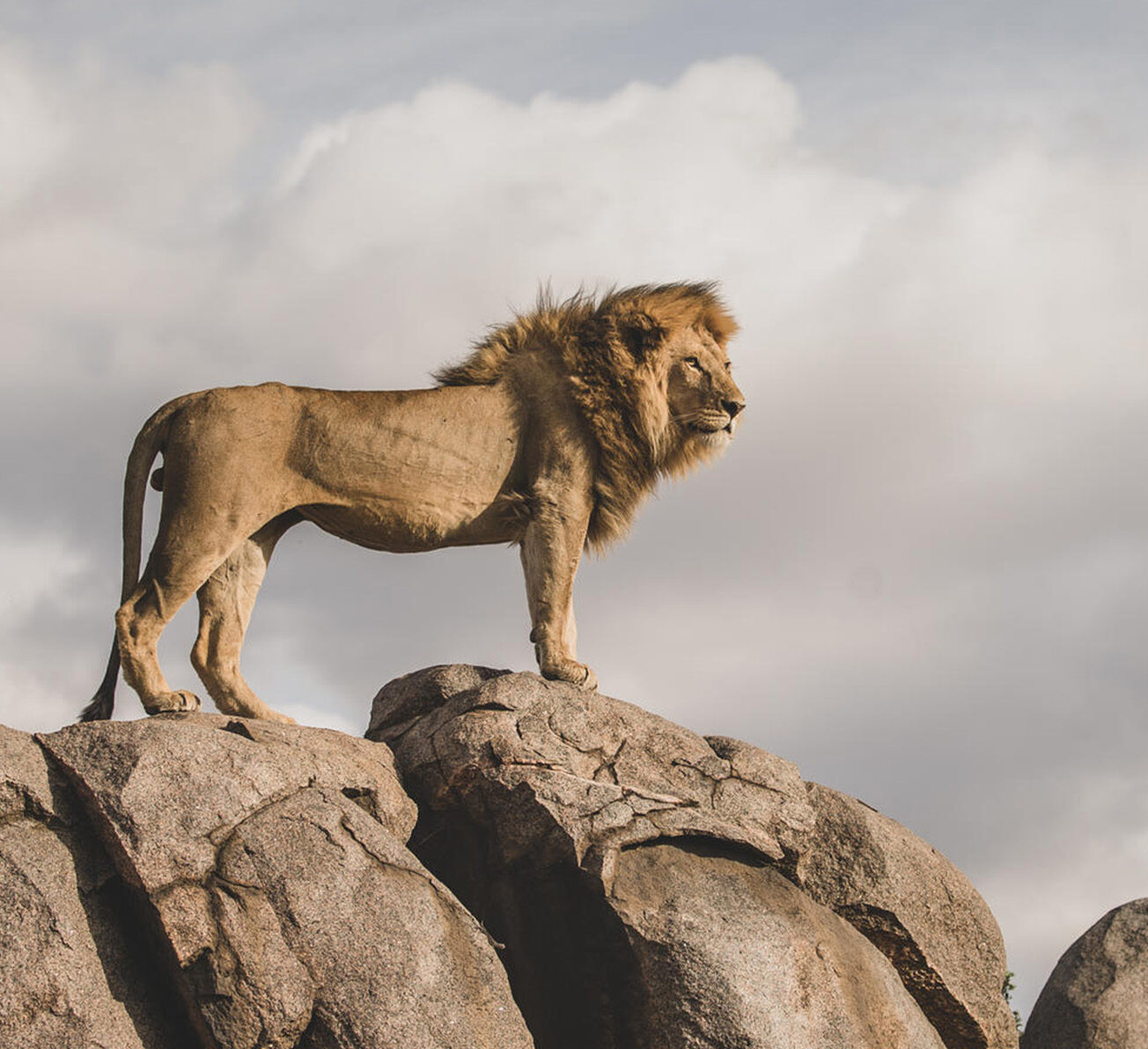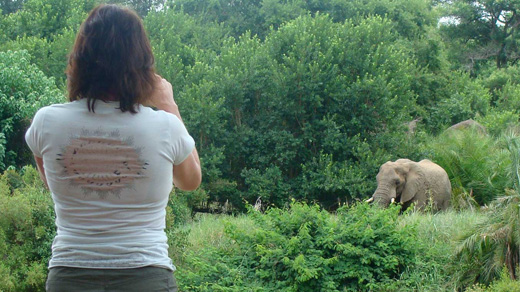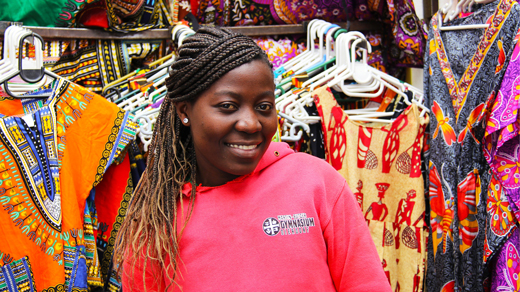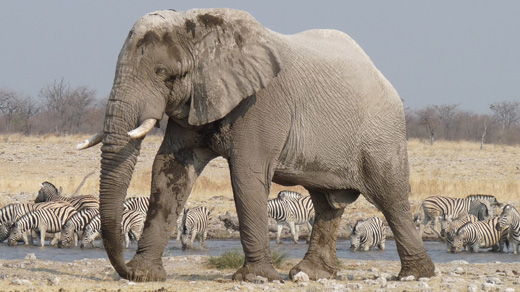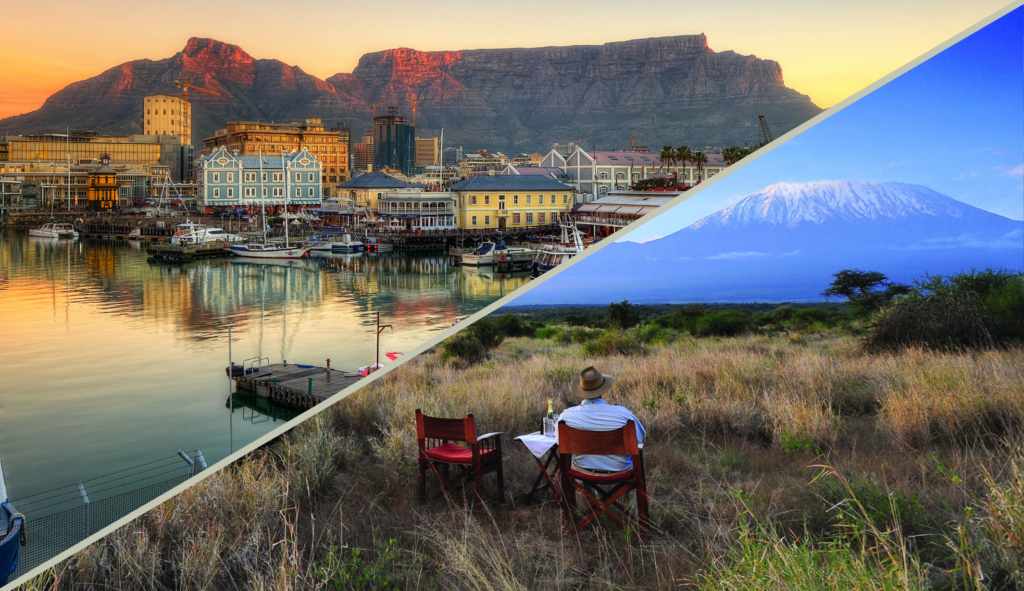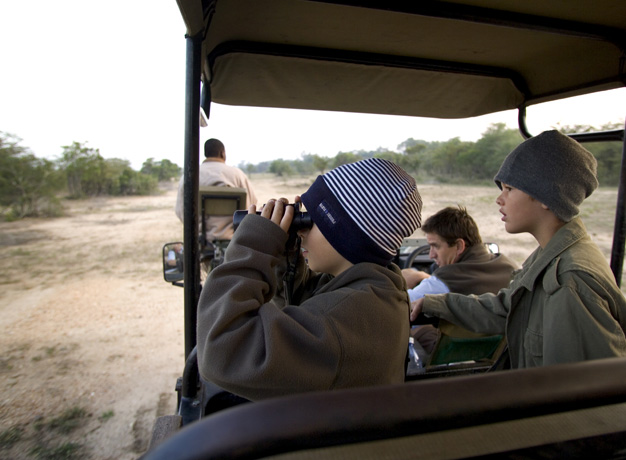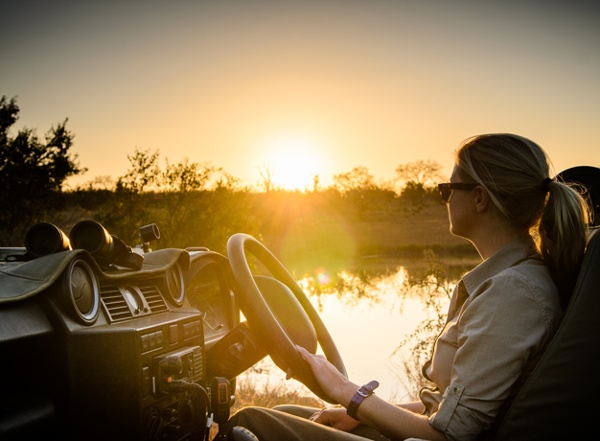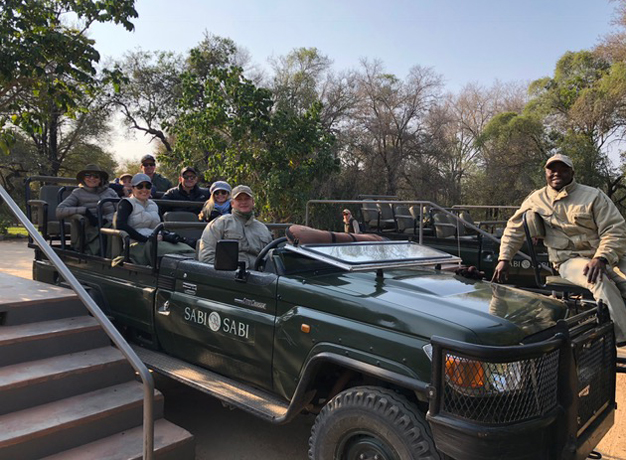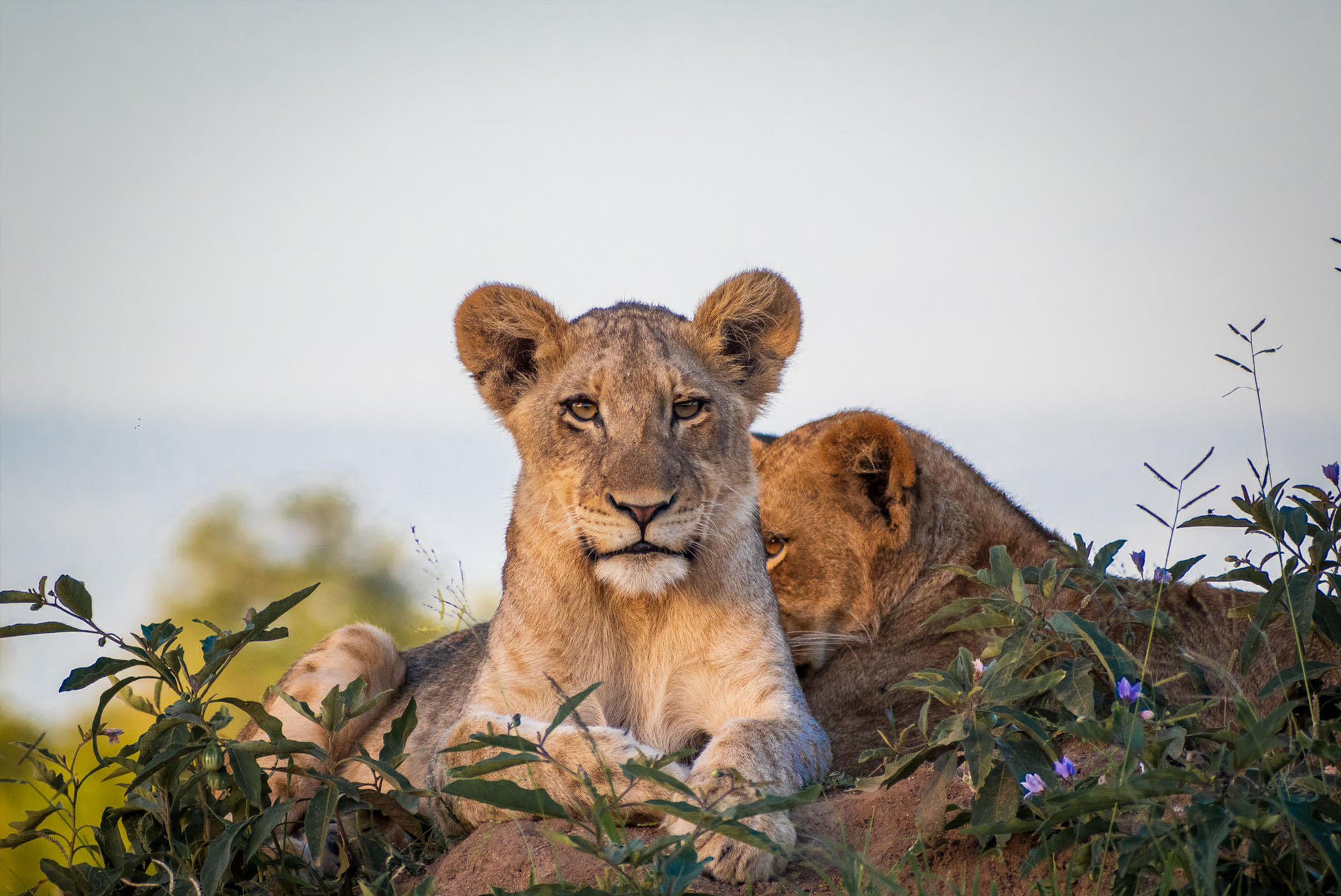
South Africa
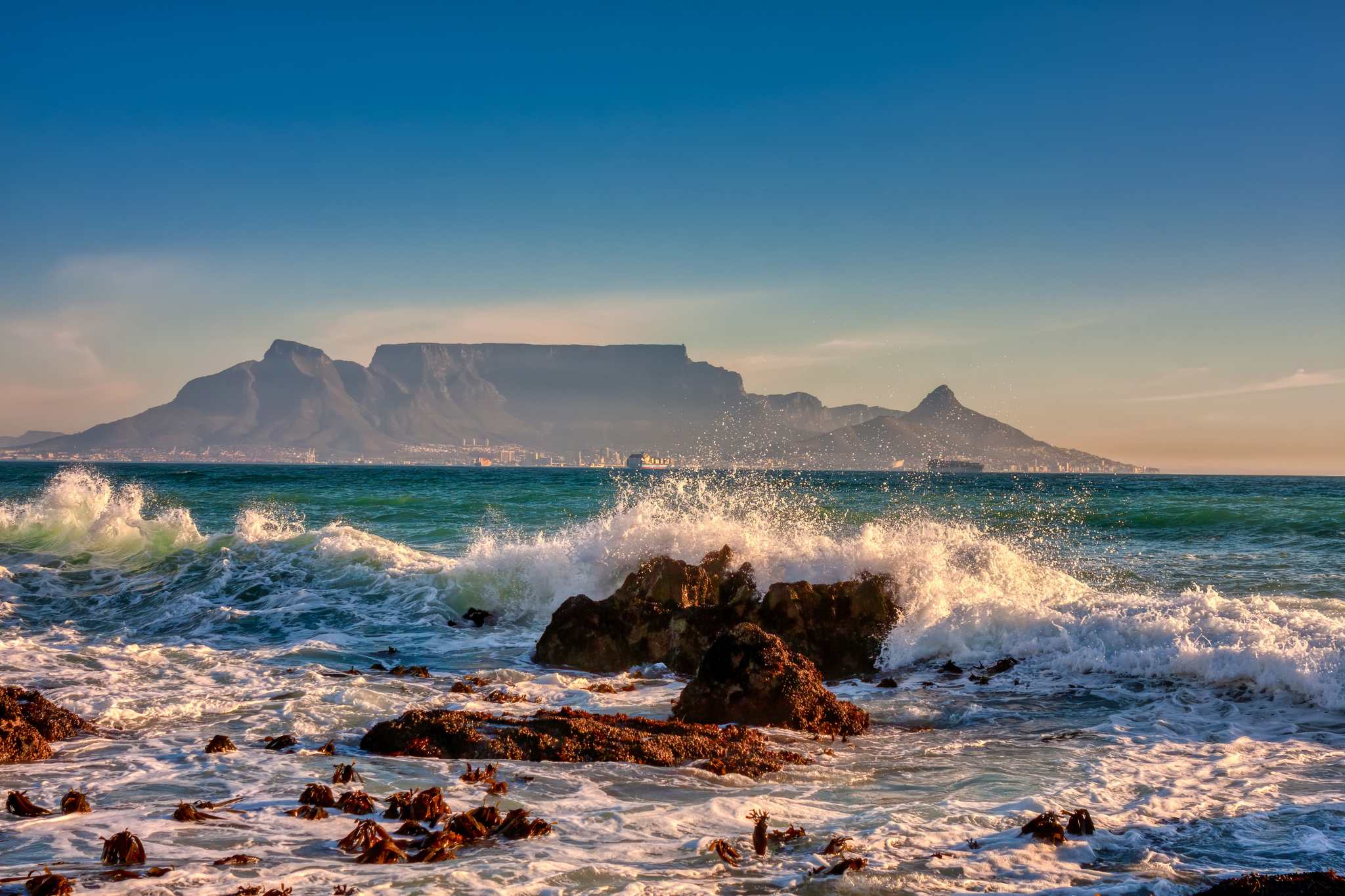
South Africa Safari Tours and Holidays
South Africa is renowned for its world-class safaris, diverse wildlife, and striking landscapes that range from rugged mountains and scrubby bushveld to sweeping coastlines. Whether you are travelling solo or with family, the country offers something for every kind of traveller. Families will appreciate malaria-free areas, making it a safer choice for children, while solo travellers benefit from the freedom to explore at their own pace, supported by expert guides. Beyond unforgettable game viewing and iconic landmarks like Table Mountain and the Winelands, South Africa is known for doing high-end travel particularly well, from beautiful lodges to exceptional food and wine, all at a price that often represents excellent value compared to similar experiences elsewhere in Africa.
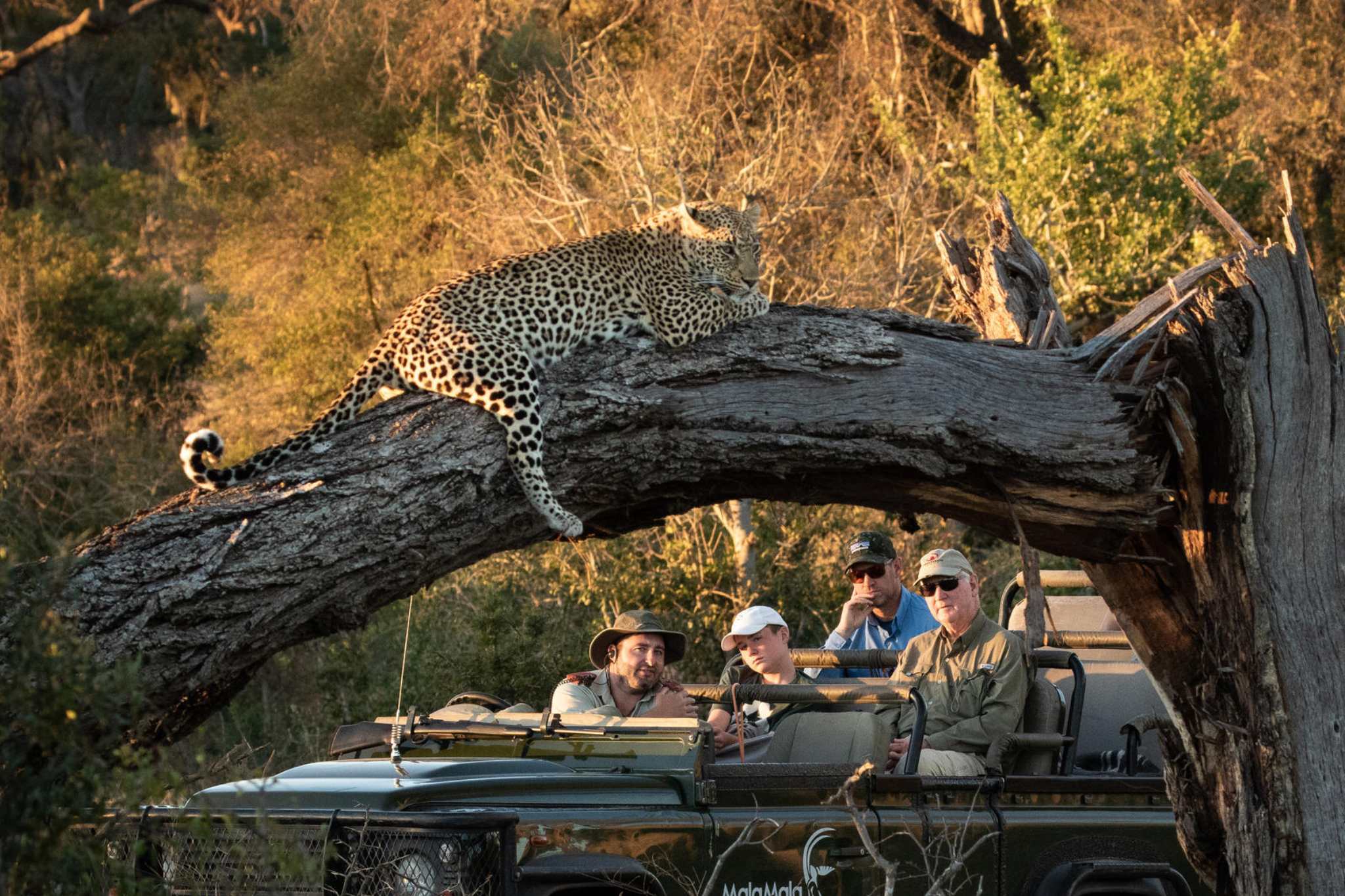
Why should I book a South Africa holiday?
South Africa is one of the most accessible and most affordable destinations for safari, with excellent infrastructure, diverse landscapes, and a wide range of wildlife experiences. While Kruger National Park is well known, many travellers prefer the neighbouring private game reserves such as Sabi Sand, Timbavati, and Thornybush. These reserves share unfenced borders with Kruger yet offer a more intimate safari experience with off-road game drives, fewer vehicles at sightings, and highly skilled trackers who follow wildlife on their own terms.
South Africa’s appeal extends beyond its parks. From the dramatic coastline of the Garden Route to the vineyards of the Cape Winelands and the cosmopolitan charm of Cape Town, there is an enormous variety of experiences to explore. Whether you want to spot the Big Five, enjoy the country’s culinary highlights, or simply relax in a private lodge with sweeping bushveld views, South Africa makes it easy to do so in style and comfort.
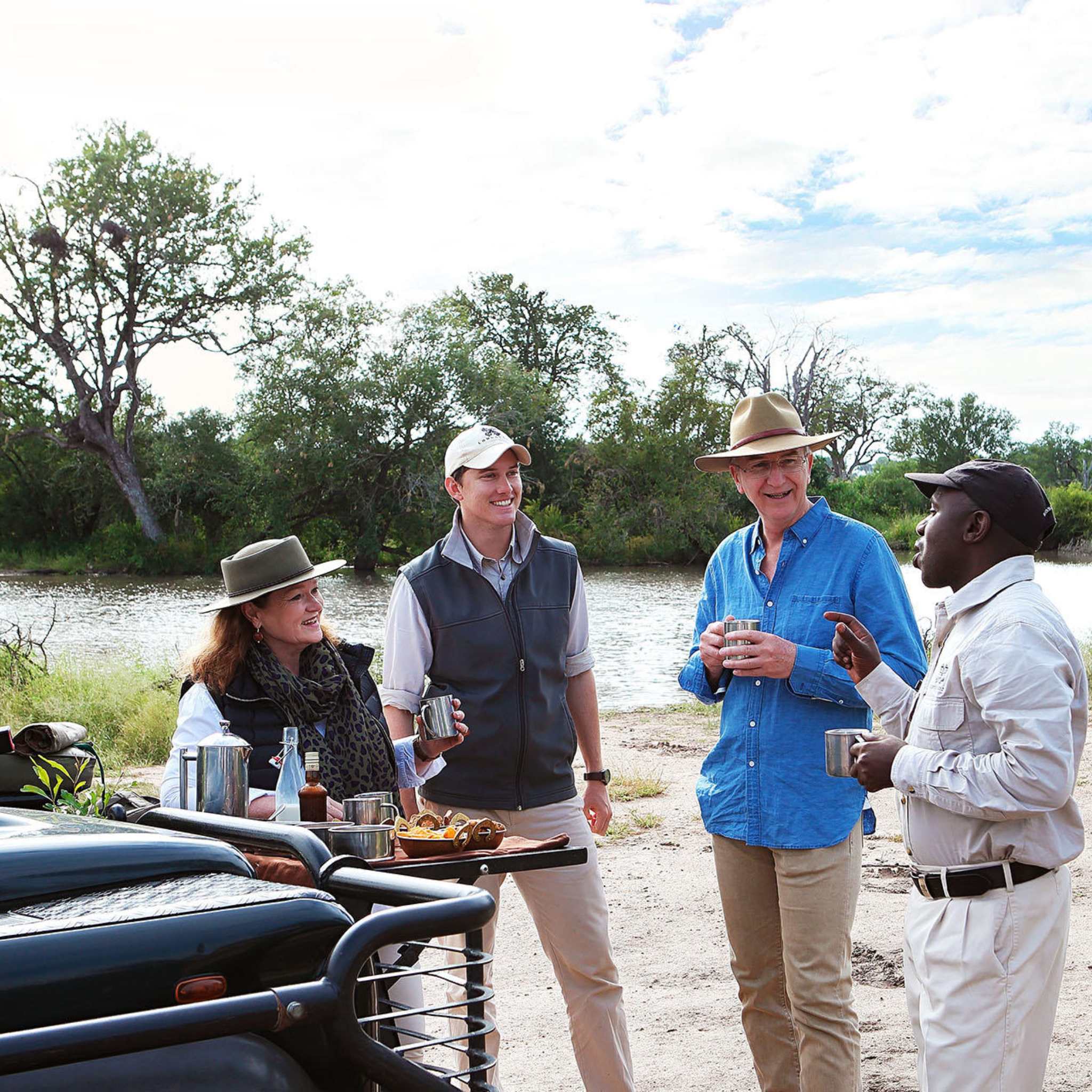
- Full Country Name Republic of South Africa
- Area 1,233,404 sq km
- Population 54.8 million (UN 2015)
- Capital Pretoria (Administrative), Cape Town (Legislative) and Bloemfontein (Judicial)
- Borders Botswana, Lesotho, Mozambique, Namibia, Swaziland and Zimbabwe
- Religion Christian, Muslim, Hindu, Jewish and traditional religions
- Time Zone Standard time is two hours in advance of Greenwich Mean Time
- Languages English, Afrikaans, Xhosa and Zulu are the most common of the 11 official languages. English is the language of administration and is widely spoken. Others are Northern Sotho, Southern Sotho, Sotho, Swazi, Tonga, Tswana and Venda. Many foreign languages are spoken in the larger hotels and shops
- Country Dialling Code +27
South Africa highlights
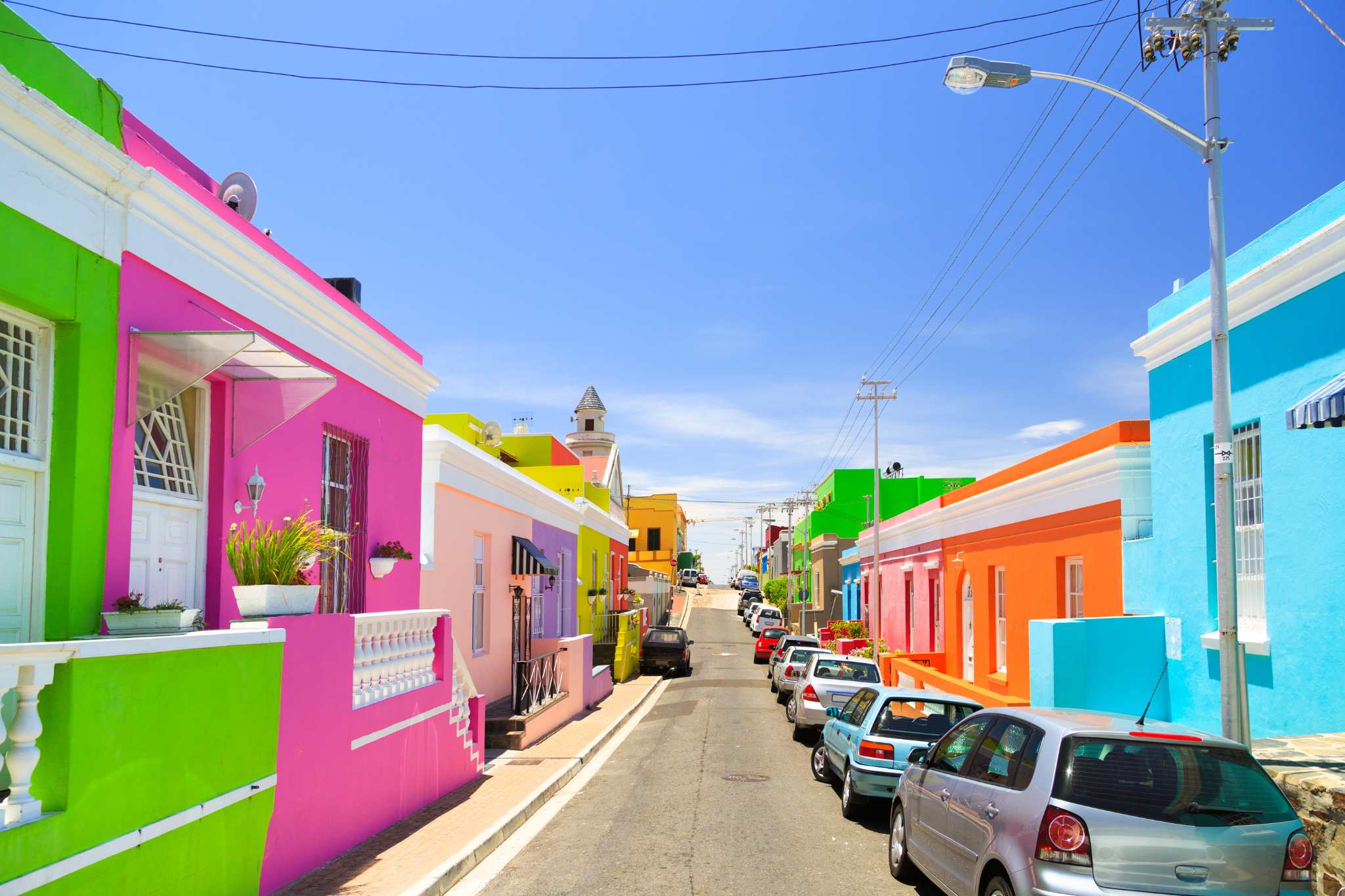
Cape Town
Cape Town draws you in with its dramatic setting, edged by mountains and sea. Explore the Cape Point Peninsula, wander vibrant neighbourhoods, and take in a city shaped by history and natural beauty.
Cape Town
Cape Town sits between mountain and sea, where bold landscapes meet layered history. From the colourful streets of Bo-Kaap to the working docks of the V&A Waterfront, the city is alive with movement and culture. A drive along the Cape Point Peninsula winds past quiet bays, towering cliffs, and colonies of African penguins. Table Mountain rises above it all, while Robben Island and the District Six Museum reflect stories of resilience. With nearby vineyards, celebrated restaurants, and a growing art scene, Cape Town balances natural drama with urban energy.
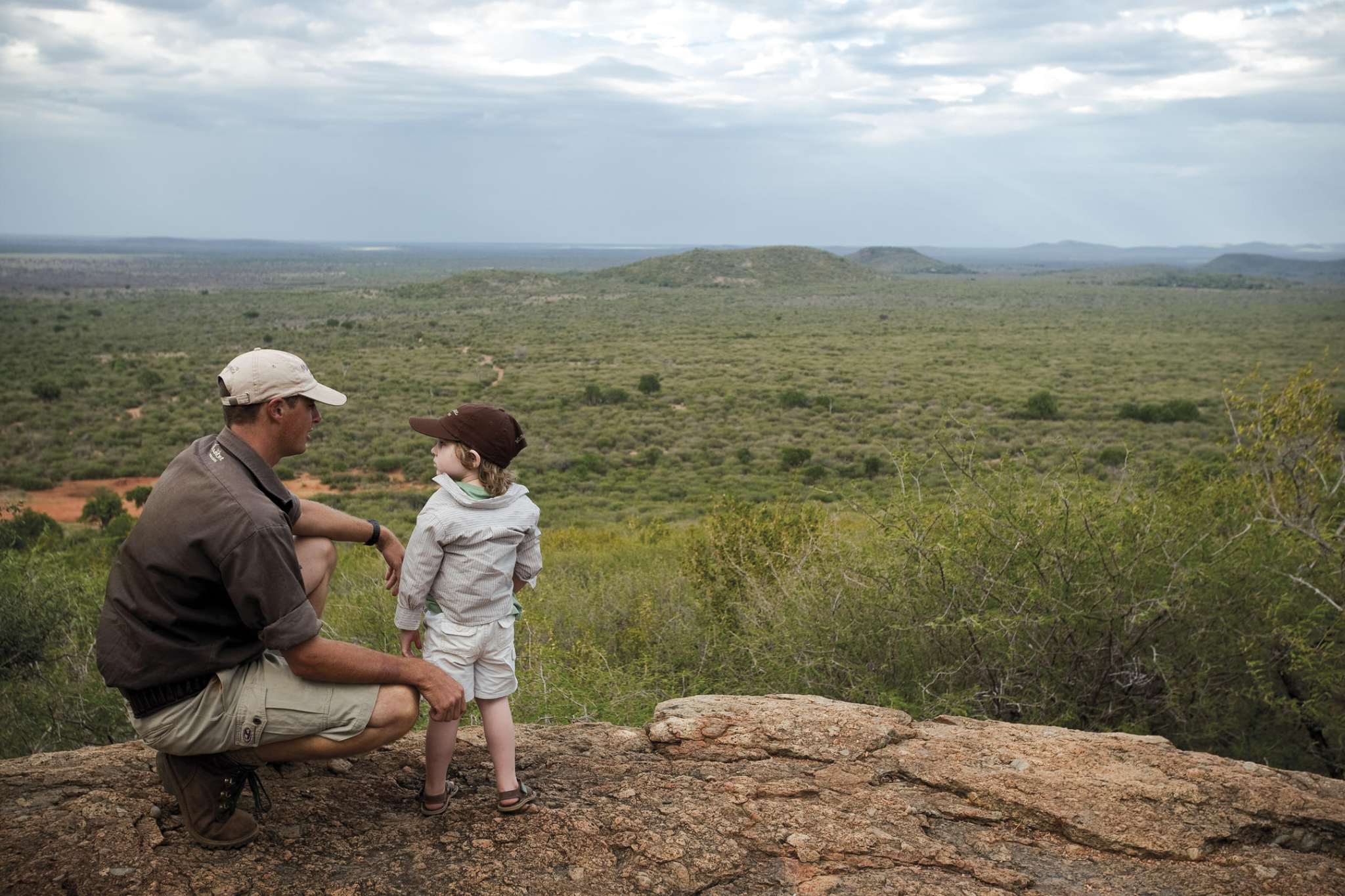
Madikwe Game Reserve
Madikwe Game Reserve in South Africa is a malaria-free destination known for Big Five safaris, open bushveld landscapes, abundant wildlife, and family-friendly lodges.
Madikwe Game Reserve
Madikwe Game Reserve in South Africa is a malaria-free destination known for Big Five safaris, open bushveld landscapes, abundant wildlife, and family-friendly lodges. Safe, exciting, and full of wildlife, it’s a safari adventure the whole family can enjoy together.
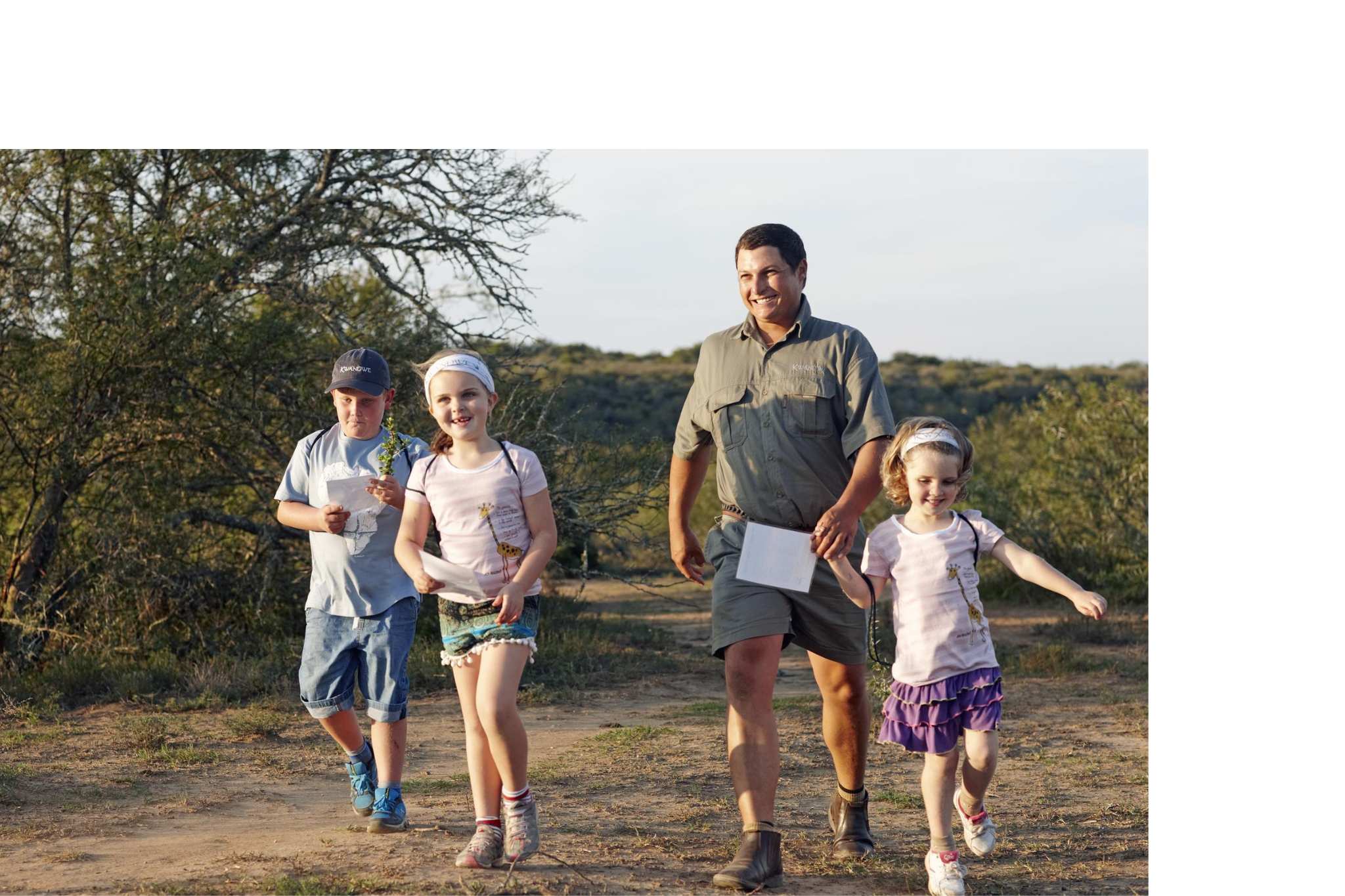
The Eastern Cape
The Eastern Cape features private game reserves and wild coastline with Big Five safaris alongside ocean views. Many reserves are malaria-free, making it a family-friendly choice for safari.
The Eastern Cape
The Eastern Cape is a varied region of rolling hills, rugged coastline, and wildlife-rich private reserves. Many are malaria-free, making it popular with families and travellers seeking a relaxed safari. Here you can track the Big Five, explore bushveld trails, and enjoy coastal drives with chances to see dolphins and whales. The Eastern Cape combines wilderness with warm hospitality and a quieter pace than more famous safari areas.
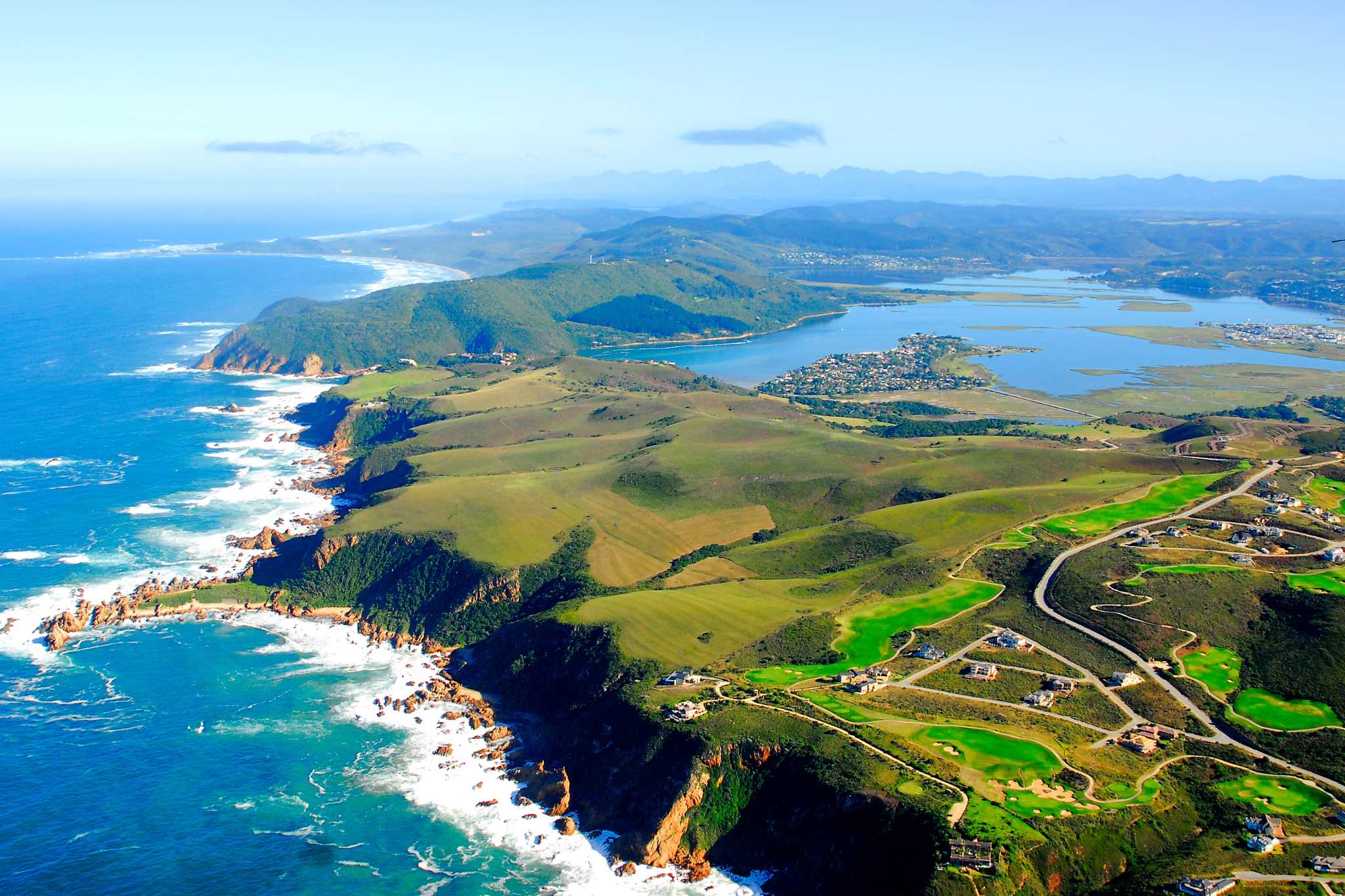
The Garden Route
The Garden Route follows the southern coast where forests meet the sea, with charming towns and wildlife reserves perfect for self-driving exploration.
The Garden Route
The Garden Route runs along South Africa’s southern coast, winding through forests, lagoons, and beaches. From the charming town of Knysna to the cliffs of Nature’s Valley, this region combines outdoor adventure with relaxed coastal living. Many travellers explore it by self-driving, enjoying the freedom to stop at ancient forests, wildlife reserves, and seaside villages serving fresh seafood. The Garden Route brings together diverse landscapes and experiences within easy reach.
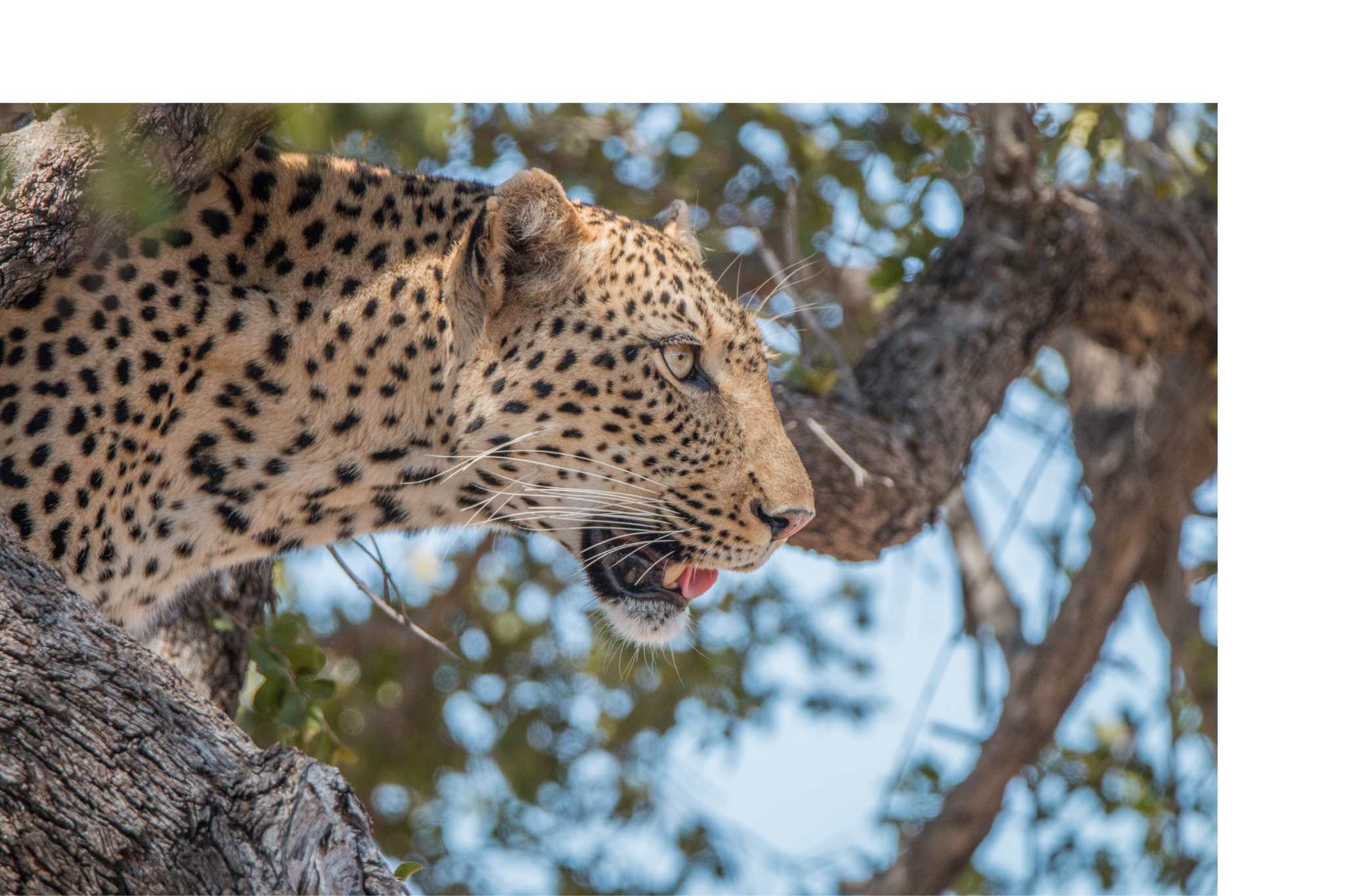
The Greater Kruger
Greater Kruger combines the national park and adjacent private reserves into one renowned safari destination, home to the Big Five.
The Greater Kruger
Kruger is South Africa’s best known safari destination, encompassing the vast Kruger National Park and the private reserves that form the Greater Kruger. Together they create one of Africa’s most rewarding wildlife areas, known for exceptional Big Five game viewing. The National Park is extensive and easily accessed, but the private reserves often deliver a more intimate experience with fewer vehicles at sightings, off road driving and excellent guiding.
South Africa experiences
Blog posts on South Africa
Essential trip information
-
Accommodation
-
Accommodations in Africa, including hotels, lodges, and tented camps, vary from good tourist standards to award-winning deluxe properties. Occasionally, circumstances beyond Bench Africa’s control may necessitate a change in the assigned hotel, lodge, or camp. In such cases, we will make every effort to provide advance notice. However, please note that we may not be able to provide up-to-date information on the substitute property.
For information about the individual hotels, lodges, or tented camps designated for your stay, please consult your itinerary for a detailed overview.
Adventure Camping
We recommend this for the more intrepid travellers who want to get their hands dirty! Guests will put up their own tents and may be required to help around the campsite. The basics are catered for, as well as two-man tents and sleeping mats and campsites preselected to stay at along the journey. The amenities at these campsites can vary quite drastically depending where you are in Africa and what you pay. For example in the Serengeti there is no running water at the campsites, however in other parts of Africa the campsite may have a swimming pool.
Fully Serviced Camping
For those that want to experience a traditional safari, under canvas but would still like the chance to relax and take time to enjoy their environment we would recommend fully serviced camping. On arrival the mobile camp is set up and ready to go. The tents are spacious and can be really quite luxurious, often with camp beds and en-suite bathrooms, as well as a full staff of chefs, waiters and other helping hands. Here you will have lighting, hot water and cold drinks but you still have that amazing feeling of being at one with nature!
Luxury Tented Camping
Luxury tented camps are a very popular choice on safari because these camps are very intimate, usually with no more than 20 tents on site. These luxury tents offer spacious rooms with electricity, proper beds, as well as en-suite bathrooms with running hot and cold water. The cuisine and service is of a very high standard and you will eat like a king, with 3 decadent meals a day, as well as snacks. All luxury tented camps offer an all-inclusive package to incorporate meals, local drinks and game viewing activities. At night you can still go to sleep, under canvas with the sounds of the African wilderness around you. This is how you do safari in style!
Safari Lodges
Safari Lodges vary considerably in size and architectural design but essentially these are much more permanent structures, often with many more rooms than luxury tented camps. They will often have a swimming pool and conferencing facilities. A lodge will celebrate the nature surrounding it and will usually blend in with its surrounds and built making natural, locally sourced materials.
Hotels
This would commonly be the largest of all the accommodation types but again can vary quite dramatically in style, size and the amenities that it offers. There is typically a reception area, with rooms opening directly onto a hallway. They would be less exclusive that the aforementioned accommodation types, with restaurants and other facilities open to the public.
Boutique Hotels
A boutique hotel is a 5-star establishment providing all the features and facilities of a standard hotel but is always unique and very stylish. These properties are usually smaller and more intimate than a hotel and offer a very high-end service.
Note
Hotels, lodges and tented camps in Africa range from good tourist standard to award- winning deluxe properties. On occasions it may be necessary to change a hotel, lodge or camp due to various reasons, which would be out of the control of Bench Africa. In this situation we will make every effort to give you as much advance warning as possible. In the event of this happening we may not be able to send out up-to-date information on this substitute property. For more information on the individual hotels, lodges or tented camps where you will be staying please refer to your itinerary or speak to one of our Africa experts.
-
Clothing
-
General Information
In most of Africa, formal attire is typically unnecessary; therefore, we recommend limiting your luggage to the basics. However, more formal attire may be necessary in prestigious city hotels or during luxury rail journeys, such as Rovos Rail or the Blue Train in South Africa.
On a wildlife safari, casual cotton clothing is the most practical. Opting for calm, neutral colours like tan or khaki is advisable, although a specific bush outfit is not essential. It is recommended to wear some form of sun-protective headgear, and sunglasses are essential.
To cope with colder evenings and early mornings, it’s advisable to bring a warm fleece or jacket. Additionally, a lightweight raincoat may prove useful, considering the possibility of seasonal rains. While heavy footwear is unnecessary, it’s advisable to wear sturdy, comfortable walking shoes or boots for nature walks. It’s also recommended to bring a change of shoes, like trainers, for the camp setting.
The dress code is informal at all camps but bring long-sleeved shirts and trousers for the evenings to minimise exposure to insect bites.
Many hotels, game lodges, and camps provide laundry facilities, often as a complimentary service, especially when luggage space is limited. However, if you have a busy itinerary, it is advisable to check in advance that your clothes will be ready before your departure.
Safari Packing List
Essentials:
- Soft-sided bag for easy storage in safari vehicles and light aircraft
- Hat for sun protection
- Reusable water bottle
- Good quality, preferably polarized sunglasses
- Binoculars
- Torch
- Camera, charger, and adaptor
- Travel adaptor for charging devices
- Spare glasses (if you wear contact lenses)
- Comfortable walking shoes, trainers, and sandals
- Shorts/skirts
- Long trousers/slacks
- T-shirts/long-sleeved cotton shirts for cooler evenings
- Sweater/fleece/raincoat for early morning and late afternoon game activities
- Warm jacket, beanie, gloves, and scarf for winter months
- Swimming costume
Health and Safety:
- Basic medical kit (aspirins, Elastoplast, Imodium, antiseptic cream, etc.)
- Malaria tablets and antihistamine cream
- Insect repellent containing DEET (though many lodges provide sprays)
- Protective suntan lotion, especially for pale and sensitive skin
- Tissues or ‘wet wipes’
- Lip balm
-
Communication
-
Africa generally has a well-established telephone, mobile, and satellite network. International telephone services are commonly provided by hotels and lodges, with private telecommunication centres available in larger towns. If you have a mobile phone with roaming capabilities, you can utilise cellular networks, which are prevalent in most larger towns and tourist areas. Alternatively, you have the option to purchase a local SIM card upon entering the country. It’s important to note that phone coverage may be limited in wildlife areas, and Wi-Fi may not always be accessible in camps and lodges. However, many hotels and lodges do provide email and internet services, contributing to communication options while travelling in Africa.
-
Country Overview
-
Affectionately referred to as ‘The Rainbow Nation’ for its multicultural population, South Africa is a country of contrasts, a captivating blend of dramatic landscapes, extraordinary wildlife, and rich cultural traditions. From the vibrant energy of Johannesburg to the coastal charm of Cape Town, also known as ‘The Mother City’, the diversity of experiences in South Africa is as vast as its scenic beauty.
Journey through the Garden Route, a picturesque stretch along the Western Cape, offering spectacular vistas, charming towns, and vineyard-draped hills in the Cape Winelands. Embrace the vibrant local culture in Soweto or delve into South Africa’s fascinating history at UNESCO World Heritage sites like the Drakensberg Mountains and the Cradle of Humankind, where ancient stories of human evolution come to life.
And, undoubtedly a highlight for many, embark on an exploration through some of South Africa’s national parks and private concessions, including the world-renowned Kruger National Park – a vast sanctuary for some of the planet’s most remarkable wildlife, delivering a world-class game viewing experience.
South Africa’s commitment to responsible tourism is ever-present in its efforts towards conservation and community development.
Whether strolling through urban landscapes, embarking on safari, enjoying the exceptional cuisine, or experiencing rich local traditions, South Africa promises a memory-filled journey of a lifetime!
-
Electricity
-
Voltage & Frequency
The standard voltage in South Africa is 230V, with a frequency of 50 Hz.
Socket Types in South Africa
Type M
-
Families
-
Considerations when Travelling with Children
As the infrastructure in South Africa is of a high standard, travel in South Africa is a lot easier than in other parts of Africa.
South Africa is quite unique in that there are malaria-free safari areas. This means that it is great for families! Our top picks for malaria-free safaris in South Africa would be Madikwe Game Reserve, Kariega Game Reserve, Kwandwe Private Game Reserve and Shamwari Game Reserve.
Accommodation
There are some great lodges that are set up with children in mind, with child-friendly menus, fun and varied activities, as well as kiddies clubs to keep them entertained.
Travelling to South Africa with Children
There are additional requirements for children travelling to Botswana. Please refer to the Smart Traveller website for more information.
-
Food & Drink
-
General Guidelines
Most lodges and safari camps have restaurants and licensed bars, and the food offered ranges from good basic meals to gourmet style. The standard of food in lodges and camps is generally very good.
Bottled water is available in all tourist centres. It is advisable to drink at least 2-3 litres of water per day whilst on safari as dehydration can occur quickly, especially in the summer months. It is best to assume that water is NOT safe to drink unless it has been boiled. It is always wise to double check locally if in any doubt.
Wine tends to be imported and may be expensive; however, local beer and local spirits are reasonably priced and easily available as are soft drinks (Pepsi, Coca Cola etc) and bottled water.
-
Health
-
General Guidelines
Health requirements vary from country to country. We recommend you speak to your GP or local Travel Doctor for up-to-date information and advice. The following information is to be used as a guide only.
Malaria: For travel to various regions in Africa, taking precautions against malaria is advisable. Consult with your doctor to determine the recommended prophylactic for your trip.
-
Insurance
-
Our Tips for Choosing Insurance
Insurance is a mandatory requirement for your travels, and we strongly advise you to secure Comprehensive Travel Insurance at the time of booking your trip.
Make sure you have a thorough understanding of the Terms and Conditions outlined in your policy and that you are well informed about your insurance coverage to ensure that you are adequately prepared for any unforeseen circumstances during your travels.
-
Internal Flights
-
Guidelines
It is advised to request the local operator of the hotel/lodge to reconfirm all onward flights before departure to ensure the accuracy of the flight timings.
While most departure taxes (both domestic and international) are typically included in the tickets, certain regional and private airports may require local payment for taxes.General Luggage & Weight Restrictions on Light Aircraft
Most charter companies strictly adhere to luggage allowances, which can vary from 15kgs to 20kgs per passenger, including camera equipment and hand luggage. It is imperative to check your itinerary for the accurate luggage weight allowance specified for your trip.
Soft bags are the only acceptable form of luggage, as hard suitcases cannot be accommodated due to their physical inability to fit into safari vehicles and small aircraft storage compartments. Pilots must have the flexibility to manipulate soft bags into these compartments.
On certain light aircraft, passengers may also be subject to personal weight restrictions for safety reasons. It is advisable to check with us upon booking to ensure compliance with these guidelines and to address any specific concerns.
-
Money Matters
-
Currency
The official currency in South Africa is the Rand (ZAR), divided into 100 Cents.
You Should Know
Full banking services are accessible in major towns, though they may involve a commission.
Upon arrival, visitors are required to complete a currency declaration form. Customs authorities may also request to see official exchange receipts as you depart the country. It’s advisable to keep these documents handy for a smooth travel experience.
Credit cards are not accepted everywhere, so it is not advisable to rely solely on credit cards as a primary source of funds, particularly in places where card usage may be limited, such as remote lodges. It is recommended to inform your bank before using your credit card overseas, and using a PIN number is considered more secure than a signature. In Africa, Visa is the most widely accepted credit card, with larger establishments also accepting American Express and MasterCard. Diners Club is not generally accepted in most establishments.
Tax Refund
In South Africa, the current Value Added Tax (VAT) stands at 15%, and it is generally included in the prices of most goods and services. While visitors are not exempt from paying tax on their purchases, you can claim it back if the total value of items exceeds R 250. This refund can be processed at airports, various harbours, and customs offices. To initiate the VAT refund process, you must present the original tax invoice, a VAT refund control sheet, and your foreign passport. It is essential to have the purchased items on hand for verification.
-
Photography
-
Guidelines
Photographing of airports, Government buildings, etc is prohibited. Some local people strongly object to photographs being taken without permission, but will sometimes agree upon payment of a small tip. Please check with your guide.
Film and memory cards are generally available, but stocks can be limited and could be expensive, so we suggest you carry with you adequate supplies. Telephoto lenses for game viewing, lens hood and ultra violet filters will be useful – bring your dust cover. Batteries can be recharged at most lodges and hotels, but it is advisable to bring spares.
See our 7 Handy Tips for Taking Mesmerising Photographs for tips on nature and wildlife photography.
-
Recommended Reading
-
- The Elephant Whisperer by Lawrence Anthony
- A Long Walk to Freedom by Nelson Mandela
- 101 Things to Know When you go on Safari in Africa by Patrick Brakspear
- Birds of Prey by Wilbur Smith
- Cry, The Beloved Country by Alan Paton
-
Responsible Giving
-
As you prepare for your journey to Africa, consider making a positive impact on local communities by allocating a small space in your luggage for essential items that can significantly improve the lives of those in need.
Explore the Pack for a Purpose initiative, connecting travellers with specific requirements identified by local projects. The website provides a platform where you can find a list of requested items and guidelines for responsible giving.
Additionally, many camps actively engage in community projects, often sharing details on their websites. Take a moment to visit the websites of the camps you’ll be staying at. Check if they have specific needs for supplies that you can bring and donate upon your arrival. A small act of generosity can make a significant difference.
-
Road Travel
-
Road Conditions
Please note that road surfaces vary from tarmac, gravel, sand and occasionally vehicles may travel “off road”. Additionally, when exploring remote areas, National Parks, and Reserves, expect rough and bumpy roads, occasionally in poor condition and susceptible to adverse weather conditions.
Road Safety
Established in 1969, Bench Africa has decades of experience in planning safaris with safety as a priority. We recommend travelling with a reputable ground operator that follows strict speed and road safety guidelines. Booking through Bench Africa ensures you are in capable hands throughout your journey.
-
Safety and Security
-
General Safety
- Doors should be locked when driving after dark.
- Don’t walk alone at night in city streets, isolated beaches or remote areas.
- Travellers should not display unnecessary signs of wealth (e.g. mobile phones, money, and expensive jewellery) on the streets.
- Leave all your valuables including passports locked in the room safe where available.
Safety on Safari
When staying at safari camps and lodges, they will often give you a safety briefing and there are several key points to keep in mind regarding wildlife respect and safety:
- Wild animals in Africa are not like those found in theme parks; they are not tame.
- Camps are often unfenced, allowing wild animals to roam freely. While attacks are extremely rare, it is crucial to strictly follow camp guidelines to ensure your safety.
- Pay close attention to the camp staff and guides.
- Avoid wandering off on your own without a guide, even within the camp. Once you retire to your room at night, it is important that you do not leave.
- Observe animals silently, minimising disturbance to their natural activities. Loud talking on game drives can frighten the animals away.
- Never attempt to attract an animal’s attention. Avoid imitating animal sounds, clapping your hands, pounding the vehicle, or throwing objects.
- Respect your driver/guide’s judgement regarding proximity to lions, cheetahs, and leopards. Avoid insisting on getting the vehicle closer for a better photograph, as it can disrupt a hunt or cause animals to abandon a hard-earned meal.
- Dispose of litter properly, as litter on the ground can harm or poison animals and birds.
- Never attempt to feed or approach any wild animal on foot, particularly near lodges or in campsites where animals may have become accustomed to human visitors.
- Refrain from smoking on game drives, as the dry African bush is highly flammable, and a flash fire can pose a threat to animals and their habitat.
-
Self-Drive
-
Bench Top Tips
South Africa is widely regarded as a safe destination for self-drive itineraries, however it’s crucial to be prepared to drive long distances. Additionally, when entering National Parks, be prepared to pay a local fee in cash.
Keep in mind that when renting a vehicle, you’ll need an Australian or International Drivers Licence. Furthermore, it’s important to note that petrol stations across South Africa operate on a cash-only basis and do not accept credit cards. Make sure to plan your travel arrangements accordingly to ensure a smooth and hassle-free journey.
-
Shopping
-
There is a wealth of beautiful souvenirs and crafts available for purchase. Look out for vibrant materials, sisal bags, wood or stone carvings, unique artwork, handcrafted jewellery, woven goods, and appealing basketry. Bargaining is a customary practice at markets and roadside stalls but not typically in shops. Locals may initially quote inflated “tourist prices,” and negotiations are expected until a fair value is reached.
Cash in the local currency is widely accepted, as well as US Dollars, while credit cards may only be suitable for larger shops.
Bench Africa is committed to actively supporting anti-poaching initiatives. As part of our dedication to responsible tourism, we emphasise ethical practices and discourage the purchase of items associated with illegal wildlife trade, such as ivory, rhino horn, animal furs/hides, and other prohibited materials. Our commitment aligns with the ban on hunting and the protection of wildlife, reinforcing our stance against activities that harm or exploit endangered species.
-
Tipping
-
Tipping is customary in South Africa, though not as widespread as in the United States or Europe. It is discretionary, a way of expressing gratitude for exceptional service.
To assist with budgeting, the following guidelines are provided in Rand:
Driver (per person per half day): ZAR 30.00
Driver (per person per full day): ZAR 50.00
Guide (per person per half day): ZAR 50.00
Guide (per person per full day): ZAR 100.00
Safari Tracker (per person per full day): ZAR 50.00
Game Ranger (per person per full day): ZAR 100.00
Camp Staff (per person per day) ZAR 50.00
Hotel Porters (per bag ZAR): 15.00
Restaurant (per person per meal): ZAR 15.00
A la carte dining (percentage of bill): 10% -
Useful Numbers
-
South Africa High Commission in Australia
Corner State Circle and Rhodes Place
Yarralumla ACT 2600, Australia
Tel: +61 2 6272 7300Australian High Commission, South Africa
292 Orient Street, Arcadia
Pretoria, South Africa
Tel: +27 12 423 6000 -
Visa Information
-
Do I Need a Visa to Travel to South Africa?
We do not provide advice on specific visas as regulations are subject to change and can vary from person to person. Please refer to Smart Traveller for the most up-to-date information. We advise checking visa requirements at the time of booking and again before travelling to keep abreast of any changes that may have occurred.
Visa requirements vary between countries, and it is essential that you acquire the appropriate visa for your journey and ascertain whether it can be applied for in advance or on arrival, in which case you will need the exact physical money. Often, your passport must be valid for at least six months beyond your intended stay, with a minimum of two blank pages (a double page). You will be required to have onward travel documents and sufficient funds. It is advisable to carry photocopies of all important documents.
It is your personal responsibility to confirm that your passport is valid, contains the necessary visa, and that you have all required travel documents.
Travelling to South Africa with Children
There are additional requirements for children travelling to Botswana. Please refer to the Smart Traveller website for more information.
You Should Know
- Visitors must also be in possession of onward travel documents and have sufficient funds for the duration of their stay.
- It is important to have two blank pages side by side in your passport for the entry and exit stamps to be issued. If there is insufficient space, entry into the country may be denied.
- Travellers entering or leaving South Africa by air, land or sea will need to complete a customs traveller declaration prior to travel. The online traveller declaration process will collect and process your travel information and provide an electronic response via email confirming declaration.
Please double check entry requirements on the Smart Traveller website as this may change at any time.
-
When to Travel
-
Climate
The southern part of South Africa, centred around Cape Town, boasts a Mediterranean climate characterised by mild and changeable winters, transitioning into hot, sundrenched summer months. Most of the annual rainfall occurs during the winter period.
As we move to the Durban and KwaZulu-Natal coastline, the influence of the warm Mozambique current gives rise to a delightful sub-tropical climate. Abundant sunshine graces this coastal area throughout the year but summer months are often hot and humid.
Venturing to the high veld, there’s a notable fluctuation in temperature between day and night, creating a distinct climatic experience. However, this daily temperature swing lessens in the coastal regions.
While much of South Africa experiences rainfall during the summer months, the western coastal belt experiences rainfall in winter.
Along the Cape’s south coast, rainfall can occur in both summer and winter. In general, winter months span from May to August, with summer extending from late October to March.
Our Expert Tip!
The optimum time to go is April-May / September-October because this is when the weather is good in both Kruger and the Cape region.
Budget Conscious?
For the budget conscious travellers September is the ideal time to travel. It is spring so it isn’t too cold, the weather is mostly dry, the whales are still around, wild flowers are in full bloom along the Garden Route and it is excellent value for money. Rates tend to increase on 01 October.
Bench Africa on Instagram
